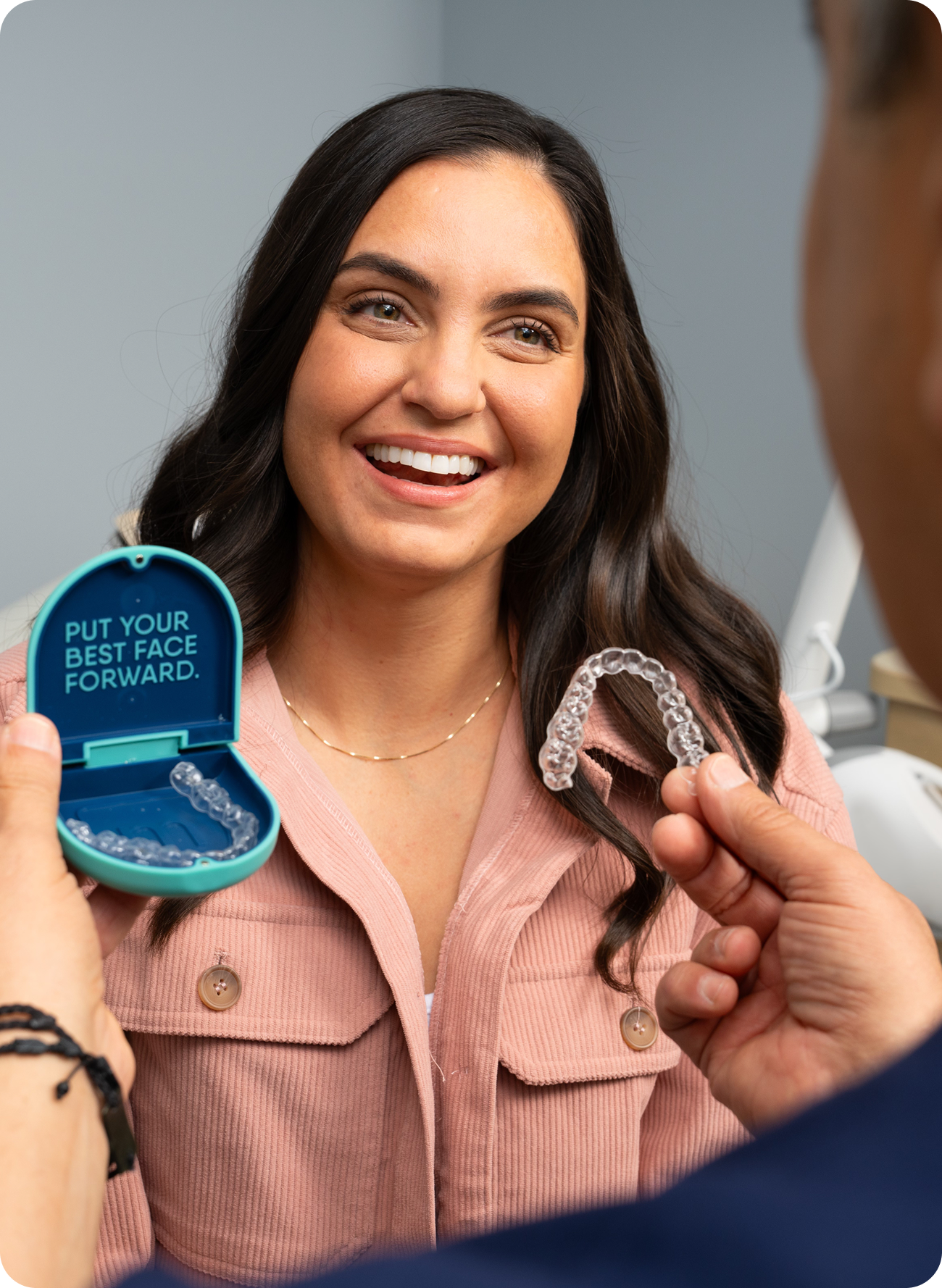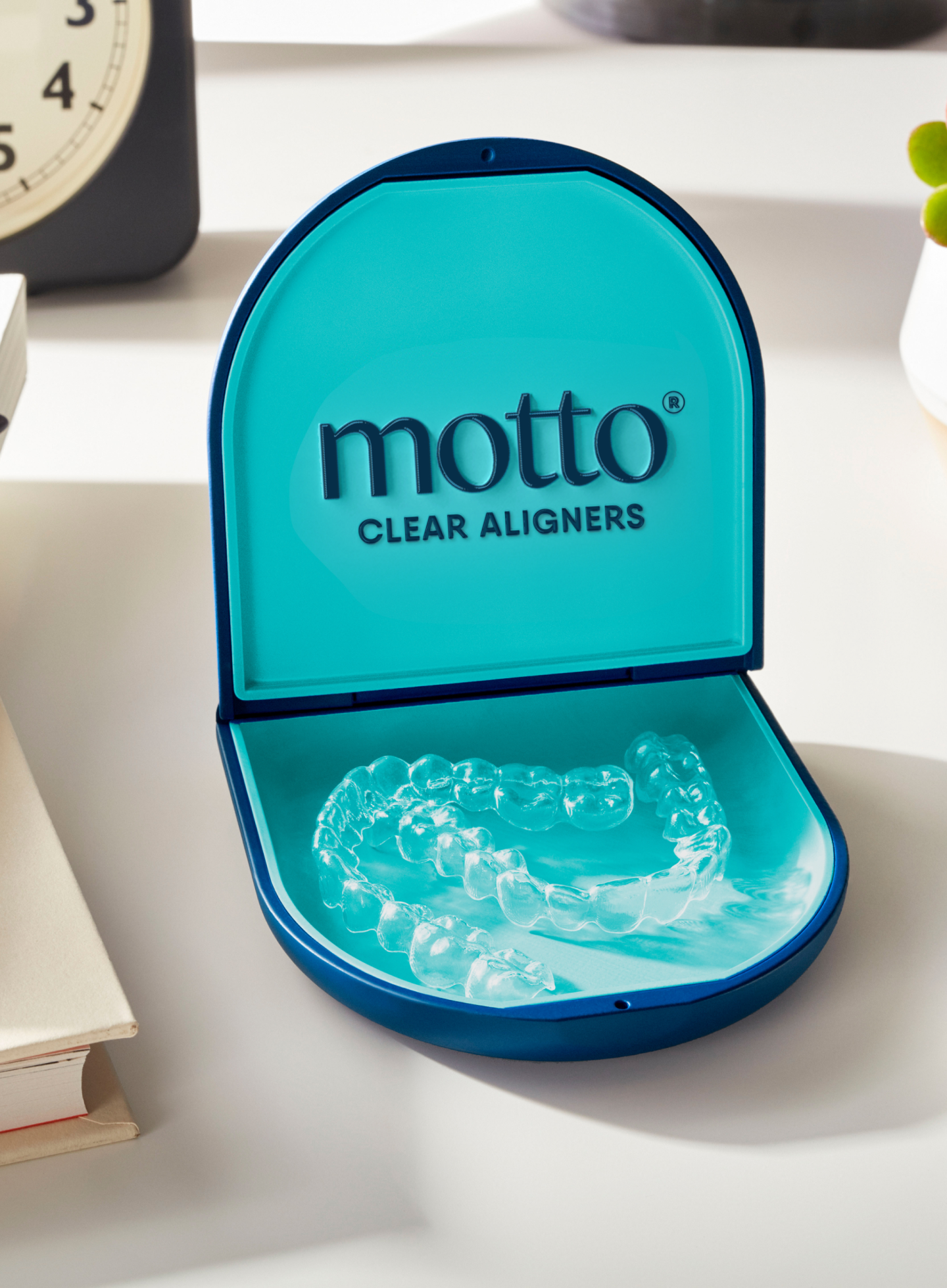Last updated 10.08.2025
Bleeding gums: causes, relief and when to get help
Bleeding gums are a warning sign of gingivitis. Causes: plaque, hard brushing. Treat with home care & dental cleaning.

At Aspen Dental, we know that even small signs can feel worrying. If your gums bleed when you brush or floss, it’s your body’s way of saying your mouth needs care. The encouraging news: bleeding gums often improve quickly with a professional routine cleaning and simple changes at home.
This guide explains the most common causes of bleeding gums, what you can do right now to ease the irritation, how your dentist at Aspen Dental can help and steps you can take to keep your gums healthy long-term.
Why are my gums bleeding: bleeding gums causes
Gingivitis
Gingivitis is the earliest stage of gum disease, and it’s one of the most common causes of bleeding gums. Plaque that lingers along the gumline can inflame tissue, leaving gums swollen, red and quick to bleed.
Brushing or flossing too hard
Your brushing technique matters. Using a hard-bristle toothbrush or pressing too firmly can scrape delicate gum tissue. Switch to soft bristles, lighten your pressure and brush in small circles.
Medicines that thin the blood
Some medications, such as aspirin, anticoagulants or even herbal supplements, may increase bleeding. If your gums start bleeding after you begin a new prescription, talk to both your doctor and your Aspen Dental dentist.
Hormonal changes and pregnancy
Hormonal changes during pregnancy increase blood flow to gums, making them more sensitive to plaque and bacteria. It’s common to notice tenderness and bleeding while brushing. Pregnancy also raises the risk of gingivitis. Learn more about how pregnancy affects your teeth and gums in this blog.
Health conditions and nutrition
Diabetes, clotting disorders and low vitamin levels can all affect gum health. Deficiencies in vitamin C or K can make gums more prone to bleeding. People with diabetes also face a higher risk of gum disease.
Home remedies for bleeding gums
While professional care is important, there are steps you can take at home to calm irritation until your visit:
Rinse with salt water or peroxide
Swish with ½ teaspoon of salt in a cup of warm water for 30 seconds. A 1.5% hydrogen peroxide rinse may also help when used as directed. Never swallow rinses.
Apply gauze and a cold compress
Wash your hands, then press clean gauze gently against the gumline for about 10 minutes. A cold compress applied to the cheek can reduce swelling and discomfort.
Brush gently with a soft brush
Brush twice daily with a soft-bristle toothbrush and fluoride toothpaste. Clean between teeth once a day using floss or a water flosser.
Clove oil, aloe vera or turmeric rinse
These natural products can feel soothing for some people. Always choose oral-safe versions and follow the instructions. If irritation worsens, stop and call your dentist at Aspen Dental.
How to stop bleeding gums: professional treatment options
At Aspen Dental, your treatment plan will depend on what’s causing the bleeding. Common care options include:
Professional routine preventative dental cleanings
Our care team removes plaque and tartar above and below the gumline, then gives you personalized guidance to improve home care.
Deep cleaning–scaling and root planing
When gum disease has advanced to periodontitis, deep cleaning is often needed. Scaling and root planing smooth the roots of your teeth to help gums heal and reattach.
Surgical options for advanced cases
For severe cases, procedures like periodontal surgery or laser therapy can restore gum health and remove infected tissue.
How to prevent bleeding gums
Preventing bleeding gums is all about consistency. Your Aspen Dental care team can help you create a plan that fits your lifestyle. Key steps include:
Brush gently with a soft-bristle toothbrush
Keep up with routine professional cleanings
Quit smoking and limit alcohol use
Eat a balanced diet, especially foods high in vitamins C and K
Use interdental cleaners such as floss, floss picks or a water flosser
When to see your dentist for bleeding gums
Bleeding gums are often the first sign of gum disease. With early care, gingivitis can be reversed. Without treatment, it can progress to periodontitis and threaten the bone and tissue that support your teeth.
Schedule a visit with Aspen Dental if you notice:
Bleeding during brushing or flossing
Tender, swollen or red gums
Puffy or shiny gums
Teeth that appear longer due to gum recession
Addressing gum bleeding early helps protect your smile and avoid more complex treatment later.
Bleeding gums FAQs
Why are my gums bleeding when I brush or floss?
Plaque at the gumline irritates tissue and causes bleeding. Switch to a soft brush, use gentle pressure and clean between teeth daily. If bleeding continues for more than a week, schedule a professional cleaning at Aspen Dental.
Are bleeding gums serious, or can I wait it out?
Bleeding gums shouldn’t be ignored. Early gingivitis can often be reversed with professional treatment and better home care. Waiting may allow gum disease to advance. If bleeding is frequent, persistent or paired with swelling, pain, loose teeth or bad breath, schedule a same-day appointment at Aspen Dental.
Which mouthwash helps with bleeding gums?
Salt water is a simple start. Antiseptic rinses or a 1.5% hydrogen peroxide rinse can also help. If alcohol-based rinses sting, choose an alcohol-free option.
Can vitamin deficiency cause bleeding gums?
Yes. Low levels of vitamin C, K or iron can make gums more prone to bleeding. Ask your doctor about a simple blood test before starting supplements.
Do bleeding gums during pregnancy go away?
Often, yes—with gentle daily care and routine dental cleanings. Hormone changes make gums more sensitive, but bleeding usually improves. If bleeding is heavy or doesn’t ease after a few days, see your dentist at Aspen Dental.



